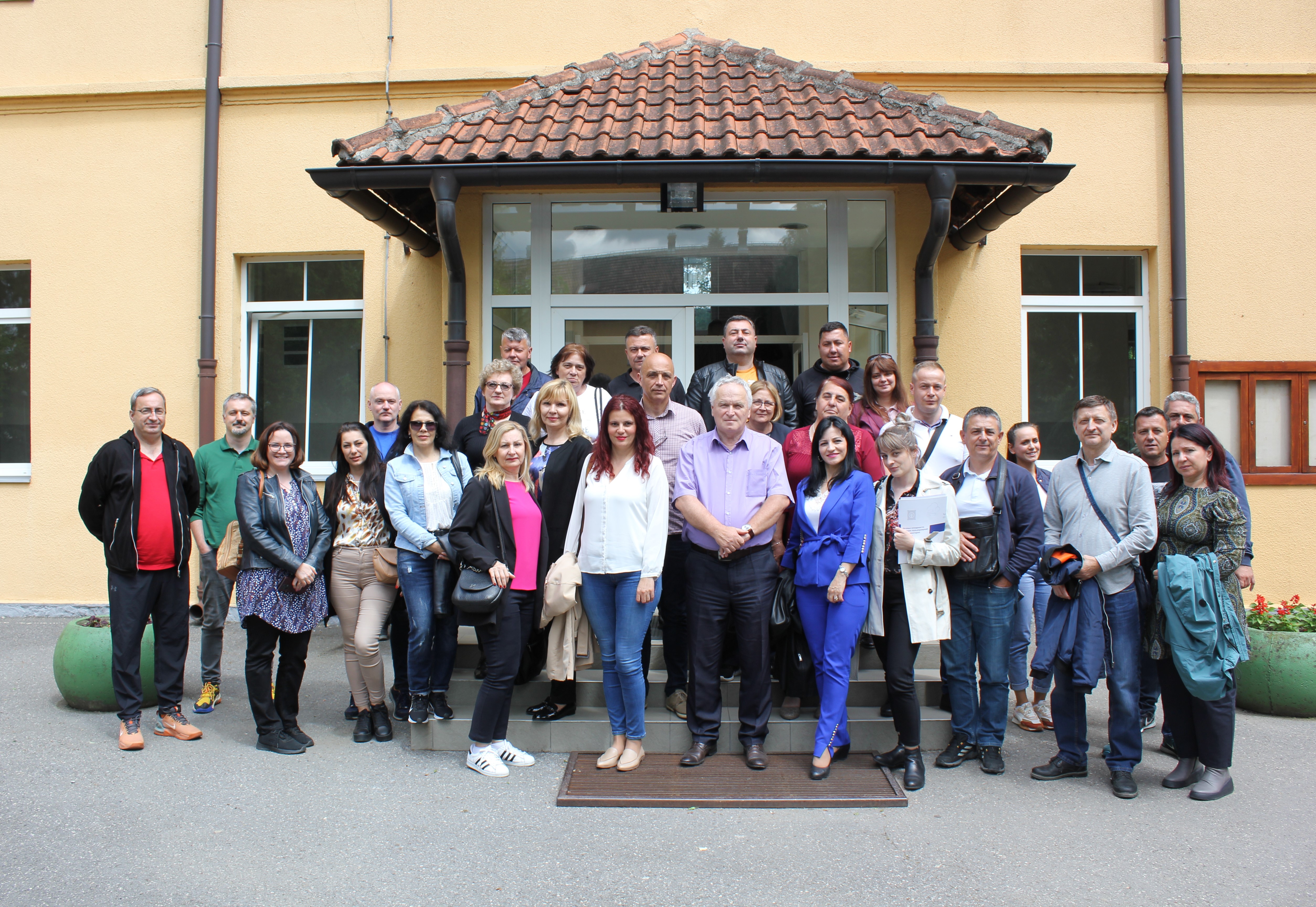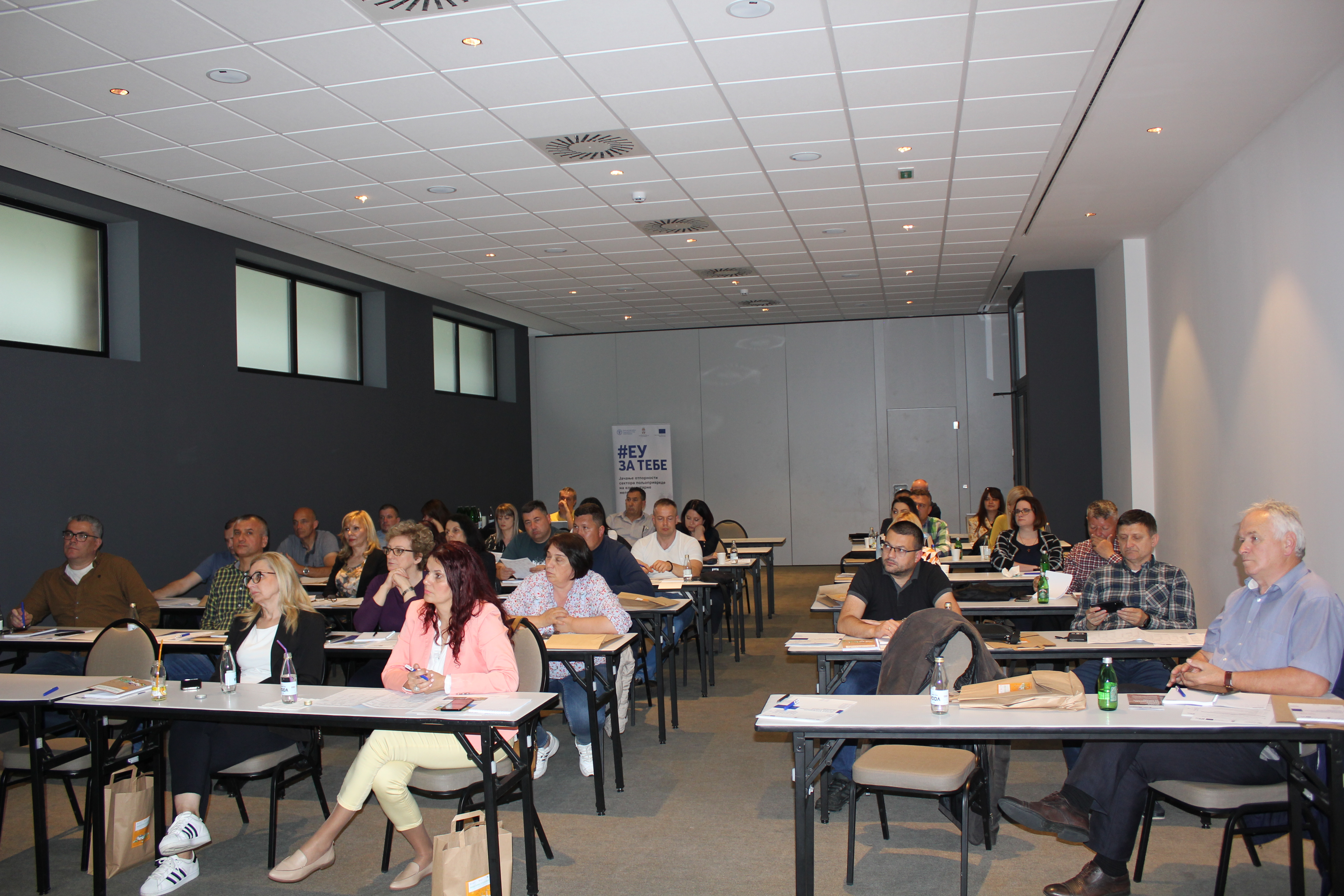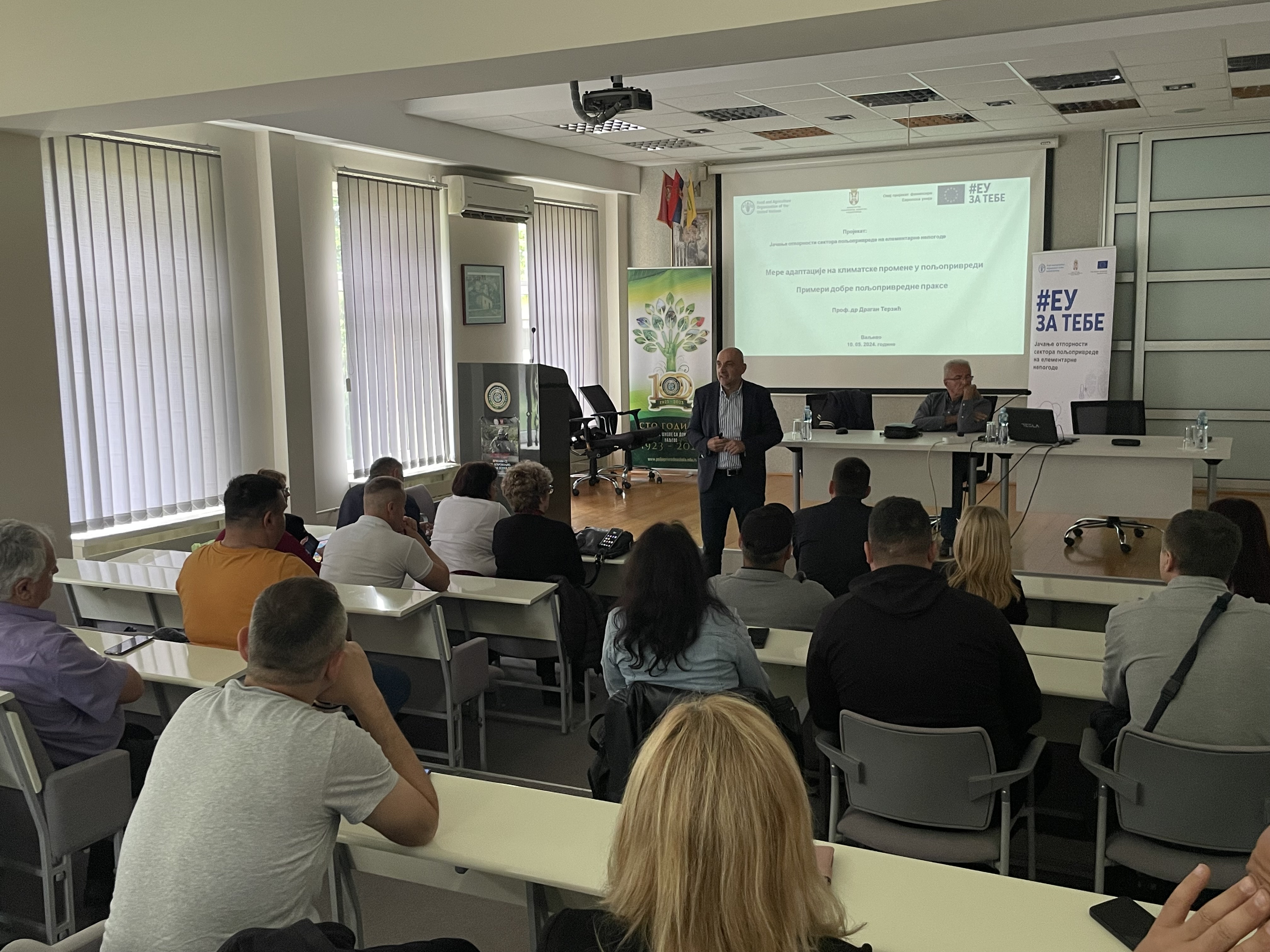Through its seven components, project “Strengthening Disaster Resilience in Agriculture”, funded by the European Union and implemented by the Food and Agriculture Organization of the United Nations (FAO), with the support of the Ministry of Agriculture, Forestry, and Water Management of the Republic of Serbia, aims to introduce the principles of climate-smart agriculture and disaster risk reduction in national and local policies, strategies and development plans so that measures aimed at more sustainable and resilient agriculture are supported at all levels of governance. Also, one of the goals of the project is to provide support to local self-governments in the implementation and enforcement of these principles in their work, while strengthening multisector cooperation and raising awareness in their communities. To provide support to employees in local self-governments involved in the project, one in a series of trainings was organized, this time under the title "Practical Application of Adaptation Measures to Climate Change in Agriculture and Experience in Risk Management". The training took place on May 9th and 10th in Divčibare and Valjevo.

This training was organized with an aim to provide a platform for sharing of good examples and practices, as well as problems that representatives of local self-governments face in their work. The participants discussed good examples of the introduction of climate change adaptation measures into local agricultural support programs, as well as the experiences gained in risk management in agriculture in the period from 2014 to 2024. In addition to FAO representatives, the training was also attended by representatives of the Ministry of Agriculture, Forestry and Water Management, who offered answers to the dilemmas faced by municipal employees.
In addition to providing space for the exchange of experiences and good practices, the participants had the opportunity to learn more about the Manual for the Introduction of Climate Change Adaptation Measures in Agriculture and Rural Development for Local Self-Governments, which was prepared within the project in response to identified deficiencies and support needs.

Part of the two-day training was realized at the Agricultural School in Valjevo, where practical examples of good agricultural practices and measures of adaptation to climate change were presented, which were applied at school premises and other demonstration fields.

Advisors from the Valjevo Agricultural Advisory and Expert Service participated in the implementation of the training, presenting the equipment that was delivered for interventions and demonstrations of technologies and practices in the field: undermining, draining, underground irrigation and calcification. PSSS Valjevo is a partner in the project for establishing demo plots and training farmers in the territory of Valjevo, Osečina and Mionica.
This was one in a series of trainings for employees in twenty-three municipalities that joined the project “Strengthening Disaster Resilience in Agriculture”. Impressions are conveyed to us by Slađana Ljutić, advisor for agriculture and waste management in the municipality of Paraćin.
"We are aware that strengthening the resilience of agriculture is a constant and slow process and that there will always be new challenges. Last year we again had damage from floods and what was a difficulty for us in the field, and what should be worked on, is the methodology for assessing damage and losses in agriculture after natural disasters. The methodology is old, assessments are often uneven, so it happens that the results are not always relevant. The lectures and workshops we have had so far with FAO have greatly contributed to strengthening our knowledge and capacity to do as much as we can locally to reduce the risks and negative effects of climate change in agriculture. Exchanging experiences with colleagues from other municipalities and cities is of key importance because it allows us to see the existing problems that we all face in our work, possible solutions to those problems, as well as how to prevent potential ones. In addition to theoretical lectures, it is also important that we have learned more about practical measures that can be implemented on local farms with relatively small investments. We share the acquired knowledge and information with our colleagues in Paraćin and with local farmers. In our municipality, within the project, a demonstration centre for the practical application of climate-smart agriculture measures was established, equipment for priority measures was obtained, demo fields were set up and farmers were trained, which contributes to raising awareness about this topic. Considering the increasingly frequent and pronounced droughts, the greatest interest of farmers is in incentives for the purchase of irrigation equipment - drip tapes, pipes, sprinklers and pumps. Encouraged by the experiences from this project, since last year we have introduced incentives for the calcification of acidic soils and initiated cooperation with the Institute for Forage Crops from Kruševac to work on experimental fields with livestock farmers and beekeepers. To conclude, the cooperation within this project means to us from various perspectives. "